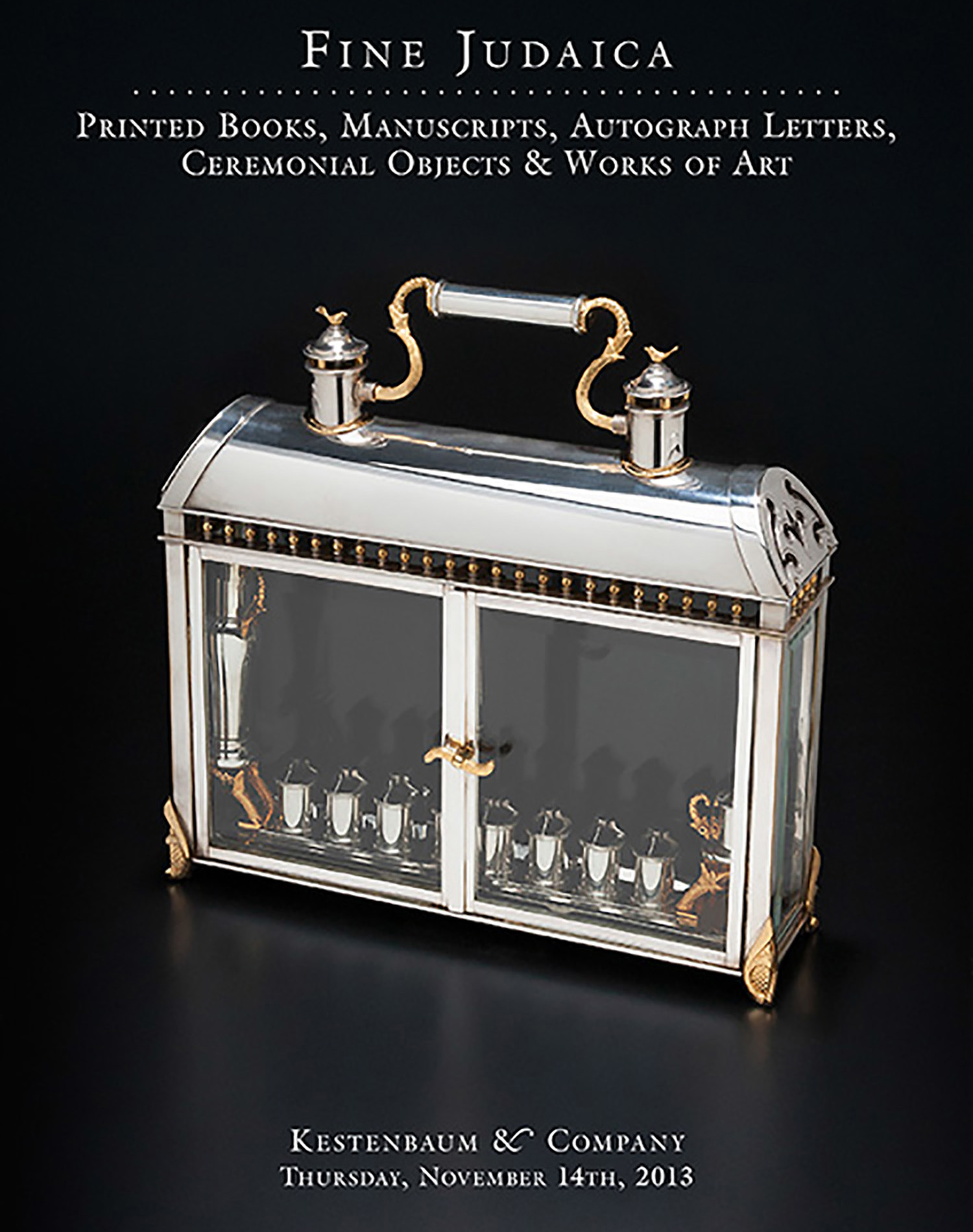Supplement to Midrash Tehilim, from Psalm 119 through Psalm 150 [supplement to Midrash Tehilim (which concludes at Psalm 118)]. << With:>> Mattathias Ha’Yitzhari. Peirush Ha’Alpha Beta [commentary to Psalm 119] (ff. 14 -18).

AUCTION 60 |
Thursday, November 14th,
2013 at 1:00
Fine Judaica: Printed Books, Manuscripts, Autograph Letters, Graphic Art and Ceremonial Objects
Lot 222
MIDRASH TEHILIM.
Supplement to Midrash Tehilim, from Psalm 119 through Psalm 150 [supplement to Midrash Tehilim (which concludes at Psalm 118)]. << With:>> Mattathias Ha’Yitzhari. Peirush Ha’Alpha Beta [commentary to Psalm 119] (ff. 14 -18).
(Salonika or Fez): n.p. (ca.1515)
Est: $5,000 - $7,000
<<EXCEPTIONALY RARE FIRST EDITION MIDRASH TEHILIM.>>
The Midrash Tehilim, also known as Midrash Shocher-Tov due to its opening verse, is one of the most beautiful in Midrashic literature. Its exalted language covers many variegated themes and contains colorful stories and parables.
The first part of Midrash Tehilim was published in Constantinople in 1512 and concluded at Psalm 118. The present text contains Midrash Tehilim from Psalm 119 to the end of the book and was published with a different typeface approximately three years later. There is much discussion among bibliographers as to precisely where it was printed: According to Steinschneider (followed by Vinograd) – in Salonika. However, Yudlov expresses doubt and writes that the fonts resemble those utilized by Eliezer Toledano in his printing of the Sepher Abudraham in the town of Fez, Morocco in 1517.
The Midrash Tehilim is followed by R. Mattathias HaYitzhari’s commentary to the lengthy 119th Psalm, “Peirush Ha’Alpha Beta.” The author, (Spain, 14th-15th century), was descended from the Narbonne family who emigrated to Aragon after the expulsion from France in 1306. This is the only work of this Spanish philosopher to be published. See EJ, Vol. XI, cols. 1129-30.
